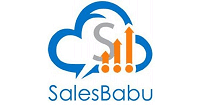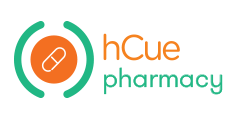Yes, most pharmaceutical industry software is designed to be available from numerous devices and platforms. This implies that customers can use the software on desktop and laptop computers, as well as smartphones and tablets. Additionally, the software is compatible with a variety of operating systems, including Windows, Mac, and iOS. This provides simplicity and flexibility for pharmaceutical professionals who need to use the program on a variety of devices and platforms.
List of 20 Best Pharmaceutical Industry Software
the Marconi Pharmacy Software suite, a solution designed for efficient management of chronic repeat patients. Available in central or distributed formats, this robust software streamlines patient management and is revolutionizing the industry. Boasti...Read More Marconi Pharmacy Software suite
Aumet ERP- a leading healthcare solution designed to optimize business operations. With advanced features like inventory management, order processing, and financial management, our platform enhances efficiency and productivity for healthcare organiza...Read More Aumet ERP
SpineBMS solution for Pharmaceutical companies. This state-of-the-art software offers a user-friendly interface, convenient cloud-based SAAS availability, and customizable features. Not to mention, SpineBMS is fully compliant with industry regulation...Read More SpineBMS
GPS Pharmacy System is a system for pharmacists, created by pharmacists. Our platform is equipped with efficient and easy-to-use features, strategically designed to enhance productivity and accuracy, giving you an edge over your competition. We recog...Read More GPS Pharmacy System
Halemind, a Electronic Health Record and Hospital Management System. Experience streamlined operations and real-time data for enhanced efficiency in your daily healthcare operations. With its advanced connectivity, Halemind offers invaluable insights...Read More Halemind
PROMAINT EAM & CMMS solution for Enterprise Asset Management. This software provides a wide range of features to easily manage and monitor all your assets, schedule maintenance tasks, and receive real-time updates on their status. PROMAINT ensures th...Read More PROMAINT EAM & CMMS
Pharmatask - an innovative sales and marketing software specifically designed for pharmaceutical companies. Optimized for both iOS and Android, it simplifies work processes and improves efficiency with its precise planning, e-detailing, and detailed...Read More Pharmatask
HealthLink Pharmacy E-Commerce, the premier e-commerce software for both retail and wholesale pharmacies. Transform your sales and streamline day-to-day operations with our highly acclaimed solution. Our platform equips pharmacy businesses with the t...Read More HealthLink Pharmacy E-Commerce
Medico SFA is a sales force automation solution for the Indian pharmaceutical market. Developed with the goal of optimizing business operations and enhancing productivity, this cutting-edge software is tailored for effective MR reporting and a compet...Read More Medico SFA (MR Reporting)
MED SFA is the Pharma CRM tailored for effective Medical Representative management. Our cutting-edge online platform ensures secure and seamless scheduling of monthly, quarterly, and half-yearly activities for all your representatives. Stay ahead of...Read More MED SFA
hCue Pharmacy is the pinnacle of Point of Sale Software in India, catering to over 1000 delighted users. Our comprehensive Medical Store Software simplifies inventory management, billing, and user management, all under one user-friendly interface. Wi...Read More hCue Pharmacy
ACGIL Calibration & Testing Lab software designed to guarantee precision and consistency in equipment measurements. This solution enables users to establish traceability to National and International standards, ensuring compliance with industry regul...Read More ACGIL Calibration & Testing Lab
MyAccounts Interventions is a automation software designed specifically for manufacturing. With a user-friendly interface and adherence to 21 CRF regulations, it offers a comprehensive solution for pharma companies to streamline their processes and m...Read More MyAccounts Interventions of manufacturing
HealthLink Retail Pharmacy is aonline platform for retail and wholesale pharmacies. Powered by advanced technology, HealthLink allows for seamless collaboration among multiple users and locations. Discover the convenience and efficiency of this compr...Read More HealthLink Retail Pharmacy
Incentiwised, the AI-powered loyalty marketing platform tailored for diverse industries such as Retail, Hospitality, Automotive, and Healthcare. By monitoring and evaluating customer interactions, Incentiwised guarantees sustained engagement with you...Read More Incentiwised
Rushda Pharmaceutical Software - an essential database tool designed specifically for the medical industry. This comprehensive software simplifies and streamlines all aspects of medicine management, from prescription and inventory tracking to patient...Read More Rushda Pharmaceutical software
GOFRUGAL Pharmacy solution for pharmaceutical distributors, stockists, and super-stockists. This cutting-edge distribution management software optimizes processes such as sales, purchase, inventory management, re-ordering, financial accounting, and o...Read More GOFRUGAL Pharmacy
AmpleLogic LIMS is a software that revolutionizes laboratory management by providing efficient data management, ensuring compliance, and automating workflow processes. Our advanced system seamlessly integrates with various laboratory operations, resu...Read More AmpleLogic LIMS
RxMile solution for pharmaceutical logistics management. Our advanced software is specifically designed to elevate customer service and improve patient experiences. Say farewell to complex deliveries and welcome a simplified workflow with our custom...Read More RxMile
AmpleLogic APQR solution for your Annual Product Quality Review process. Our powerful web and cloud-based software simplifies the review of each batch produced, eliminating the use of paper documentation. With AmpleLogic APQR, your quality review pro...Read More AmpleLogic APQR
Learn More About Pharmaceutical Industry Software
- What Is Pharmaceutical Industry Software?
- What Are The Recent Trends In Pharmaceutical Industry Software?
- Benefits Of Using Pharmaceutical Industry Software
- Important Factors To Consider While Purchasing Pharmaceutical Industry Software?
- What Are The Key Features to Look For In Pharmaceutical Industry Software?
- Why Do Businesses Need Pharmaceutical Industry Software?
- How Much Time Is Required To Implement Pharmaceutical Industry Software?
- What Is The Level Of Customization Available In Pharmaceutical Industry Software?
- Which Industries Can Benefit The Most From Pharmaceutical Industry Software?
- Conclusion
What Is Pharmaceutical Industry Software?
Pharmaceutical industry software is a specialized sort of software that is tailored to the pharmaceutical industry's specific requirements. It is a comprehensive solution for pharmaceutical companies to manage their operations, including drug research and development, manufacturing, distribution, and sales. One of the primary benefits of pharmaceutical industry software is its potential to streamline the drug development process.
It provides advanced data management, analysis, and visualization tools that can help to accelerate drug discovery and development. This ultimately leads to a shorter time-to-market for new pharmaceuticals, giving businesses a competitive advantage. Furthermore, pharmaceutical industry software includes comprehensive quality control tools to ensure that all pharmaceuticals produced satisfy stringent industry standards and regulatory compliance.
This allows businesses to avoid hefty penalties and keep a favorable reputation. Supply chain management is an important component of the pharmaceutical industry, and software in this category provides tools and capabilities for optimizing and tracking each stage of the supply chain. This involves inventory management, logistics, and distribution, all of which ensure that pharmaceuticals are delivered to patients on time.
Another important feature of pharmaceutical business software is its compliance and regulatory capabilities. The program is intended to aid businesses in complying with numerous regulations and standards established by regulating bodies such as the FDA. This helps businesses ensure that they are adhering to all relevant protocols and reducing the risk of noncompliance.
In addition to these fundamental elements, pharmaceutical business software may include functions like customer relationship management (CRM), financial management, and analytics. Some software can also be customized for specific sections of the pharmaceutical industry, such as clinical trials or contract manufacturing.
Overall, investing in pharmaceutical industry software can significantly improve a company's operations, efficiency, and profitability. It includes crucial tools and capabilities for streamlining the drug development process, ensuring compliance, and optimizing supply chain management. So, if you're looking for pharmaceutical industry software, analyze your company's specific requirements and thoroughly evaluate the available solutions to find the greatest fit for your firm.
What Are The Recent Trends In Pharmaceutical Industry Software?
The pharmaceutical sector is constantly evolving, and recent technological breakthroughs have resulted in a considerable move toward digitization. This has resulted in several modifications and trends in the pharmaceutical sector software as well. As a buyer, it is critical to stay current on these developments in order to make an informed selection when purchasing software for your pharmaceutical business.
1. Integration Of Artificial Intelligence (AI) And Machine Learning (ML): The usage of AI and ML in pharmaceutical industry software has grown dramatically in recent years. With so much data created in the sector, these technologies can assist evaluate trends, anticipate results, and automate operations, making them extremely valuable to pharmaceutical companies.
2. Emphasis On Data Security: Data security has always been a high priority for the pharmaceutical business, and with the rise of digital solutions, data breaches have become a major issue. As a result, there is an increasing trend of adding strong data security mechanisms in pharmaceutical sector software to safeguard critical information.
3. Cloud-Based Solutions: As cloud technology has grown more common in the pharmaceutical business, software vendors are increasingly offering cloud-based solutions. This provides simpler access to data and software from any location while also saving money by eliminating the need for on-premise gear and upkeep.
4. Focus On Patient-Centric Software: Pharmaceutical businesses are adopting a more patient-centric strategy, and software vendors are following suit. This has resulted in the creation of software solutions that improve patient involvement, treatment adherence, and real-time data monitoring.
5. Mobile Applications: Mobile applications are becoming increasingly popular in the pharmaceutical business because they offer simple and efficient solutions to manage duties such as medical information sharing, data collection, and patient monitoring. Remote teams and sales people can benefit from mobile apps because they allow them to access information and data while on the go.
6. Integration Of Regulatory Compliance: With rigorous rules in the pharmaceutical business, there is a growing trend of adding compliance capabilities into software systems. This enables businesses to keep compliance with regulations, manage changes, and create audit trails.
Benefits Of Using Pharmaceutical Industry Software
Pharmaceutical industry software is an invaluable resource for drug producers, researchers, and medical practitioners. It is critical to ensuring the drug development process is safe, efficient, and accurate.
Let's explore, we'll go over the primary advantages of adopting pharmaceutical industry software and how it may help your firm.
1. Streamlines The Medication: development process One of the most significant advantages of adopting pharmaceutical industry software is that it simplifies the entire drug development process. It enables researchers and manufacturers to effectively organize and manage data throughout the drug discovery process, including pre-clinical studies and final approval. This not only saves time, but also lowers the possibility of errors and boosts productivity.
2. Enhances Data Management And Analysis: With the increasing volume of data created in the pharmaceutical sector, manual data handling and analysis can be time-consuming and error-prone. Pharmaceutical business software has extensive data management and analysis features that make it easier to handle massive amounts of data and extract relevant insights. This enables researchers and manufacturers to make informed judgments based on accurate and current information.
3. Ensures Regulatory Compliance: The pharmaceutical sector is extensively regulated, and failing to comply can result in harsh consequences. Pharmaceutical sector software includes built-in compliance tools to assure regulatory compliance. It also aids audit preparation by providing verifiable documentation and data integrity guidelines.
4. Promotes Teamwork And Communication: Effective collaboration and communication across departments and teams is critical to drug development success. Pharmaceutical sector software includes project management, real-time data exchange, and communication capabilities that enable teams to collaborate effortlessly. This eliminates the need for various platforms and spreadsheets, resulting in more efficient processes and better collaboration.
5. Increases Efficiency And Reduces Costs: Pharmaceutical sector software assists in automating routine activities, minimizing human labor, and increasing efficiency. This not only saves time, but also lowers the likelihood of errors, resulting in long-term cost savings. Furthermore, the platform provides customized templates and automatic reporting, increasing efficiency and saving time for researchers and manufacturers.
Important Factors To Consider While Purchasing Pharmaceutical Industry Software?
Choosing the appropriate pharmaceutical industry software is critical for any company working in this highly regulated and complex field. With so many alternatives available, it can be overwhelming and difficult to choose the appropriate software for your individual requirements.
To ensure a successful purchase, consider the following aspects when acquiring pharmaceutical industry software.
1. Compliance And Regulatory Requirements: One of the most important elements to consider when acquiring pharmaceutical business software is compliance with industry-specific rules and standards such as the FDA, CDISC, and HIPAA. To avoid penalties and legal consequences, the software must include features and controls that assure data integrity, accuracy, and security in accordance with all applicable requirements.
2. Functionality And Features: Another important factor to examine is the functionality and features provided by the software. It should have an easy-to-use interface, adjustable functionality, and the capacity to link with other corporate systems. Electronic data collection, clinical data management, and document management are some of the most important characteristics to consider.
3. Scalability And Flexibility: As your company expands, your software requirements will change. As a result, it is critical to select a scalable and flexible solution that can adapt to your changing requirements and support future development without the need to replace the entire system.
4. Data Management And Security: Because the pharmaceutical sector deals with sensitive data, data management and security are crucial. Thus, it is critical to verify that the program provides secure data storage, backups, and disaster recovery capabilities. Furthermore, the program must comply with current data protection requirements to prevent data breaches and illegal access.
5. Support And Maintenance: Pharmaceutical industry software, like all other software, requires ongoing support and maintenance to perform effectively. It is critical to select a vendor who provides dependable technical support and regular software upgrades to ensure that any difficulties are resolved quickly and the program is kept up to date.
6. User Training And Adoption: It doesn't matter how advanced the software is if your staff can't use it properly. As a result, it is critical to select software that includes comprehensive user training, tutorials, and documentation to guarantee easy adoption and full use of the product's capabilities.
What Are The Key Features to Look For In Pharmaceutical Industry Software?
When choosing the best pharmaceutical industry software, numerous critical elements must be evaluated in order to make an informed conclusion. These characteristics are critical for optimizing workflows, enhancing productivity, accuracy, and assuring compliance in a heavily regulated business.
As a buyer, here are the main things to look for in pharmaceutical industry software:
1. Electronic Data Management System (EDMS): A reliable EDMS is required to securely store and manage all electronic documents, including batch records, analytical data, and clinical trial data. Look for software that supports quick search and retrieval, version control, audit trails, and data integrity.
2. Quality Management: Quality management is an important part of pharmaceutical production that should be incorporated into any software you select. Consider document control, deviation and CAPA management, change control, and validation of processes, equipment, and software.
3. Regulatory Compliance: Given the constant changes in regulations and guidelines, it is critical to select software that can assist in ensuring compliance. Consider features like electronic signatures, automated audit trails, and built-in compliance standards to assist speed the process.
4. Batch Tracking And Management: Tracking and managing batch data from production to distribution is critical for product safety and regulatory compliance. Look for software that includes real-time tracking, batch traceability, and detailed documentation of all actions.
5. Inventory And Supply Chain Management: Managing inventory and supply chain activities can be challenging and time-consuming. Look for software that includes inventory tracking, vendor management, and automated stock control to help streamline these procedures.
6. Integration Capability: To minimize data silos and maintain a smooth flow of information between departments, select software that can interact with existing systems, such as ERP or LIMS.
7. Security And Data Protection: As the potential of cyberattacks grows, pharmaceutical businesses must prioritize data security. To protect sensitive information, choose software that includes strong security measures such as data encryption, access restriction, and regular backups.
8. User-Friendly Interface: A simple and intuitive interface is critical for staff adoption and software efficiency. To increase staff productivity, look for software that includes customized dashboards, simple navigation, and user-friendly features.
9. Training And Support: It is critical to select software that provides extensive training and support to enable a seamless implementation and correct use of the product. Look for companies who offer on-site training, user guides, and 24-7 technical support.
Why Do Businesses Need Pharmaceutical Industry Software?
The pharmaceutical industry is a complicated and heavily regulated sector with strict standards and timelines to satisfy. In such a setting, businesses want dependable and efficient technologies to remain competitive and compliant. Here's where pharmaceutical industry software comes into play. First and foremost, pharmaceutical industry software assists organizations in streamlining their procedures and increasing productivity.
Companies can save time and resources while increasing productivity by implementing features like automated data entry and tracking, inventory management, and real-time analytics. This enables organizations to focus more on R&D, resulting in speedier product innovation and time to market. Furthermore, pharmaceutical industry software assists organizations in complying with numerous regulatory authorities, such as the FDA.
The program includes built-in tools for data integrity, tracking and traceability, and audit trails, lowering the risk of noncompliance and subsequent penalties. Furthermore, software updates are frequently done automatically to stay up with changing rules, decreasing the need for firms to manually make adjustments. Another advantage of pharmaceutical industry software is its capacity to enhance collaboration and communication inside a company.
A centralized system enables team members to access and share data, collaborate on projects, and communicate efficiently, resulting in greater efficiency and production. Furthermore, with the rise of precision medicine and individualized therapies, pharmaceutical industry software now includes strong analytical capabilities, allowing organizations to evaluate vast amounts of data and uncover key insights for better decision-making. This can lead to more efficient drug development processes and better patient results.
How Much Time Is Required To Implement Pharmaceutical Industry Software?
The deployment time for pharmaceutical industry software varies substantially based on the program and the company's requirements. On average, it takes three months to a year to fully integrate a new software system. This timeline comprises early planning and preparation, software implementation and integration into organizational operations, and employee training.
The complexity of the software and the size of the firm can both influence the implementation time. Larger firms with various departments and locations may need more time for successful adoption, whilst smaller companies with simpler operations may have a shorter schedule. Furthermore, the level of customisation required for the product can impact implementation time.
Off-the-shelf software with minimal customisation can be implemented faster than completely customized software. To achieve a seamless and effective transition, firms must carefully plan and dedicate resources to the implementation process. This entails establishing a qualified staff and providing adequate training for employees to efficiently use the new software.
While the deployment process may appear onerous, investing the time and effort required to correctly integrate pharmaceutical industry software can result in considerable long-term benefits for the organization. These include greater efficiency, productivity, and decision-making abilities.
What Is The Level Of Customization Available In Pharmaceutical Industry Software?
Pharmaceutical industry software is a form of software that is tailored to the specific demands of pharmaceutical companies. These businesses require a variety of software solutions to run their operations, which include research and development, medicine production, sales and marketing, and regulatory compliance. Because of the unique duties and procedures involved in the pharmaceutical sector, off-the-shelf software solutions may not always be enough.
This is where customisation comes in. The level of customisation available in pharmaceutical business software varies according to the software solution chosen. Some software may allow for extensive customization, but others may provide just limited modification choices. However, in general, pharmaceutical industry software provides a high level of customisation to satisfy the industry's specific requirements.
One of the key reasons for customisation in pharmaceutical business software is that each organization may have unique processes and workflows. As a result, the software must be able to adapt and suit these specific requirements. The level of customization possible ranges from simple user interface adjustments to more comprehensive alterations to the software's core functionality.
Customization may also be required to guarantee that the program fulfills regulatory standards. The pharmaceutical sector is extensively regulated, and software must follow different rules and guidelines. Customization enables businesses to modify the software to their own compliance requirements, ensuring they comply with industry rules. Furthermore, personalization can enhance the overall user experience of the software.
Complex data management and analysis are common in pharmaceutical industry software, and customization can help to speed and optimize these operations. Companies may tailor the software to their existing operations and integrate it with other systems, saving time and resources. When evaluating pharmaceutical business software, it is critical to examine the level of customisation offered.
This will depend on the software solution and the provider's capabilities. Some suppliers may provide more customization choices than others, therefore it is critical to determine which features may be adjusted to your company's requirements.
Which Industries Can Benefit The Most From Pharmaceutical Industry Software?
Pharmaceutical industry software is specifically built to meet the needs of the pharmaceutical business. It enables businesses to streamline their processes, increase efficiency, and assure compliance with industry laws. While the program is useful in a variety of businesses, some may benefit more from its features and capabilities than others.
1. Pharmaceutical Companies: It goes without saying that pharmaceutical enterprises will benefit the most from employing pharmaceutical industry software. The software, which includes broad capabilities like as medication research, clinical trials, supply chain management, and quality control, assists these organizations in increasing overall efficiency and streamlining their operations.
2. Contract Manufacturing Organizations (CMOs): CMOs are an important aspect of the pharmaceutical business, and they stand to benefit greatly from employing industry-specific software. The program helps CMOs manage inventories, manufacturing schedules, quality control, and other activities. With efficient tools in place, CMOs can better service their clients and enhance their profits.
3. Biotech Companies: Biotechnology businesses collaborate closely with pharmaceutical companies to produce new and improved medications. Pharmaceutical industry software can help these companies manage their research and development efforts, as well as their partnership with pharmaceutical corporations. The software also includes extensive data analysis tools to help in the discovery and development of new pharmaceuticals and therapies.
4. Clinical Research Organization (CROS): CROs play an important part in the drug development process by carrying out clinical trials and research. CROs can use pharmaceutical industry software to efficiently handle trial protocols, data collecting, and regulatory compliance. This streamlines the entire process, ensuring that pharmaceutical businesses receive timely and reliable findings.
5. Regulatory Authorities: Regulatory authorities, such as the Food and Drug Administration (FDA), are in charge of ensuring that pharmaceutical businesses meet safety and quality criteria. Pharmaceutical sector software gives these authorities complete tools for analyzing and approving new drug applications, performing inspections, and tracking adverse events.
Conclusion
Finally, selecting the appropriate pharmaceutical industry software can considerably improve business productivity, compliance, and overall success. Consider your company's specific demands and requirements, as well as the features and capabilities provided by the software. Conduct extensive research and confer with industry experts to discover which software is best suited to your firm.
Furthermore, examine the software's amount of customization, ease of use, and compatibility with your existing systems. A user-friendly interface and seamless integration with existing software can significantly increase productivity and streamline procedures. Furthermore, it is critical to ensure that the software meets industry laws and has strong security mechanisms in place to secure sensitive data.
Investing in pharmaceutical industry software is a long-term choice, therefore all possibilities should be carefully considered, including the potential return on investment (ROI). Look for software that provides ongoing maintenance and updates to guarantee it remains effective and relevant to your changing business demands.Finally, the appropriate pharmaceutical industry software may help organizations gain a competitive advantage, increase operational efficiency, and promote overall growth.
Consider your organization's specific aims and objectives while selecting software. With rigorous research and careful analysis, you can make an informed selection about the best software for your pharmaceutical company.
Pharmaceutical Industry Software FAQ's
Can Pharmaceutical Industry Software Be Accessed Across Multiple Devices And Platforms?
Is Pharmaceutical Industry Software Future-Proof And Adaptable To Emerging Technologies Like AI, Blockchain Or IoT?
Pharmaceutical industry software is continually evolving, and staying current with emerging technology is critical to its success. As a result, most modern pharmaceutical industry software solutions are built to be future-proof and easily adaptable to new technologies such as artificial intelligence, blockchain, and the Internet of Things.
These software solutions provide pharmaceutical organizations with the tools they need to optimize and streamline their processes, including automated data analysis, secure data storage, and real-time tracking. This prepares them to deal with the ever-changing landscape of the pharmaceutical sector.
Is There A Free Trial Offered To Assess Pharmaceutical Industry Software Before Committing?
Yes, many pharmaceutical industry software suppliers provide free trials to potential consumers. This allows organizations to evaluate the software's features and functionality before making a purchase. During the free trial, users can evaluate the software's performance, compatibility with their existing systems, and suitability for their specific requirements. It is an excellent opportunity to gain practical knowledge and make an informed decision about investing in the software.
Does Pharmaceutical Industry Software Offer Data Security Features And Meet Regulatory Compliance Standards?
Yes, pharmaceutical industry software includes advanced data security measures and meets regulatory compliance criteria such as HIPAA, GDPR, and FDA regulations. These software solutions protect sensitive patient information with powerful encryption mechanisms and strong access limits. They also feature audit trails for tracking data changes and offer real-time monitoring capabilities. Pharmaceutical firms may be confident that their data is secure and in compliance.
Can Pharmaceutical Industry Software Integrate Seamlessly With Existing Tools And Platforms?
Yes, Pharmaceutical Industry Software is designed to work smoothly with industry-standard tools and platforms such as electronic health records, inventory management systems, and quality control tools. This enables efficient data sharing and process simplification, which improves collaboration and efficiency. Furthermore, most respectable pharmaceutical software vendors include customization options to ensure that the software meets the specific demands of each firm.


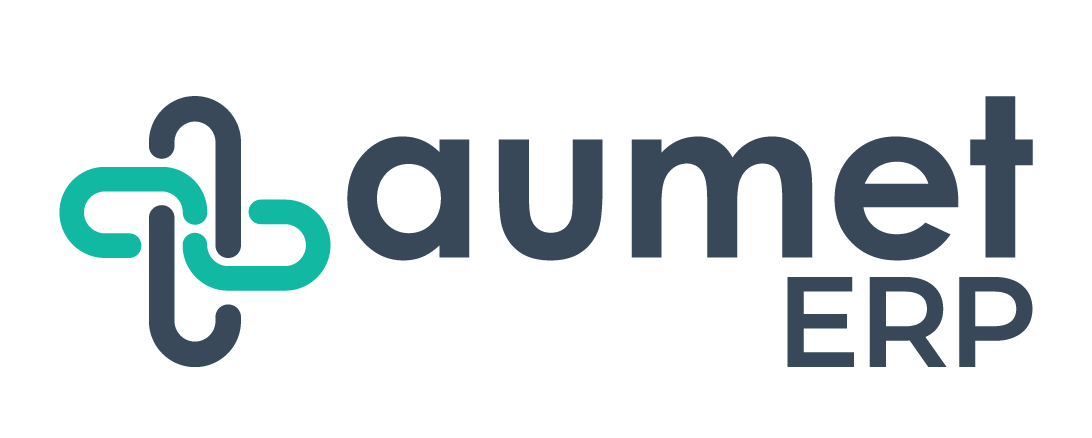

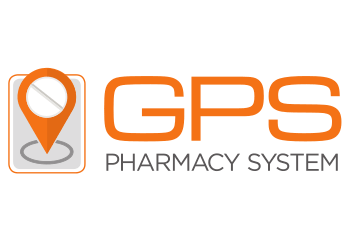


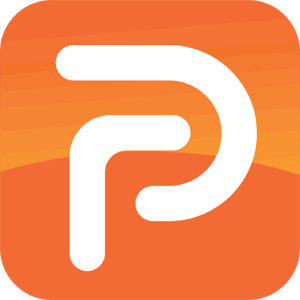

-logo.jpg)
